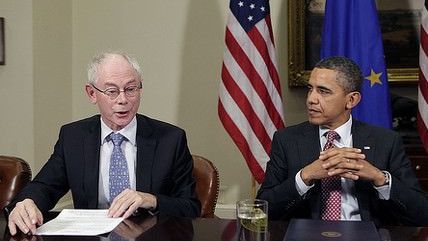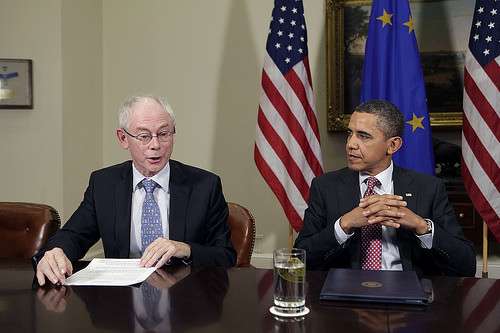Special Interests and Governments Will Screw Up EU-US Trade Deal


British Prime Minister David Cameron has announced the beginning of formal negotiations for an E.U.-U.S. trade agreement, which he said could result in "the biggest bilateral trade deal in history" and which the Associated Press reports aims to, ".. promote economic growth by eliminating the import tariffs and changing regulations that keep goods made on one side of the Atlantic from being sold on the other."
From the BBC:
Mr Cameron said the deal could be worth £100bn to the EU economy, £80bn to the US and £85bn to the rest of the world.
He said the pact could create two million jobs, and lead to more choice and lower prices in shops.
"This is a once-in-a-generation prize and we are determined to seize it," said Mr Cameron.
European Commission President, Jose Manuel Barroso. who will lead the negotiations with President Obama, said that integrating the EU and US economies would not be easy but "we will find convincing answers to legitimate concerns".
"We'll find solutions to thorny issues, we'll keep our eyes on the prize and we will succeed," he said.
Talks almost didn't happen thanks to the French, who threatened to veto if the French film and TV industry wasn't excluded from the negotiations.
As the talks develop we should expect to see more of these sort of exemptions as well as special deals with other industries. It shouldn't be surprising when European farmers, American manufacturers, and others complain about the potential deal.
Any trade agreement between the U.S. and the European Union will require ratification from the E.U. member states and the U.S. Congress. Just how beneficial a trade deal that has been ratified by over two dozen governments and includes considerations for specials interests will be to Europeans and Americans remains to be seen. I can't say I'm optimistic.


Show Comments (38)